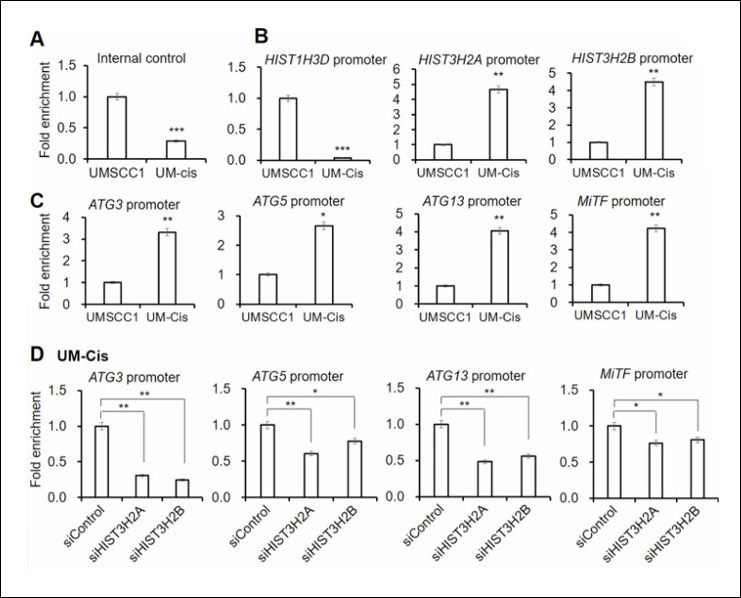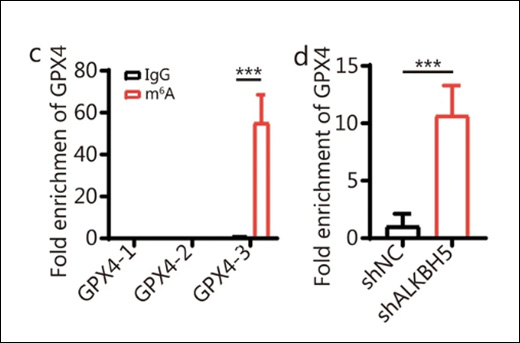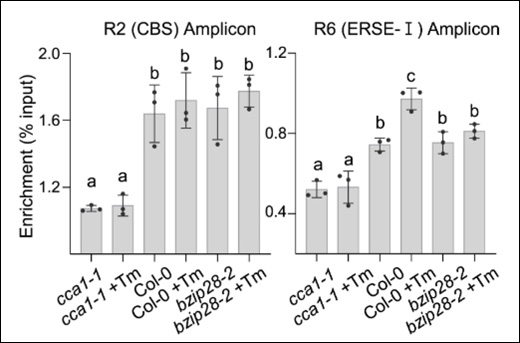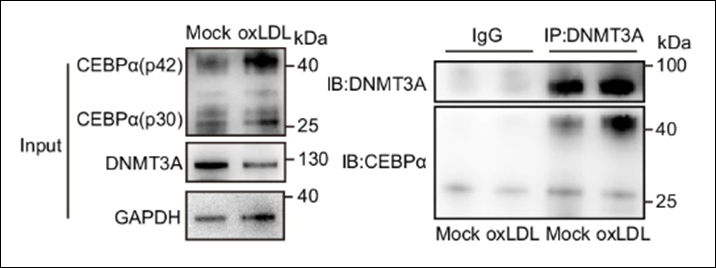Kim J et. al. (May 2023). Insights into the mechanisms of within-species variation in sensitivity to chemicals: A case study using daphnids exposed to CMIT/MIT biocide. Ecotoxicol Environ Saf. 258:114967.
This study explores how low concentrations of antibiotics induce epigenetic modifications and alter gene expression patterns in Escherichia coli, potentially contributing to adaptive antibiotic resistance and highlighting the need for strategies to prevent resistance development.
(Products Used: MethylFlash Global DNA Methylation (5-mC) ELISA Easy Kit (Colorimetric))
Farag AA et. al. (May 2023). Hematological Consequences of Polyethylene Microplastics Toxicity in Male Rats: Oxidative stress, Genetic, and Epigenetic links Toxicology. :153545.
This study investigated the hematological effects of polyethylene microplastics (PE-MPs) exposure in male rats, revealing oxidative stress, genetic damage, and epigenetic alterations. The results indicate that PE-MPs induced abnormalities in red blood cells, increased DNA damage, and DNA methylation, highlighting the potential health risks associated with environmental PE-MPs.
(Products Used: MethylFlash Global DNA Methylation (5-mC) ELISA Easy Kit (Colorimetric))
Zhang B et. al. (May 2023). Effects of fecal microbiota transplant on DNA methylation in patients with systemic lupus erythematosus J Autoimmun. :103047.
In this study, fecal microbiota transplantation (FMT) in systemic lupus erythematosus (SLE) patients increased DNA methylation levels and upregulated S-adenosylmethionine (SAM), suggesting a potential mechanism for the therapeutic effects of FMT in SLE. Specific genes, including IFN-γ, IFIH1, EMC8, and TRIM58, showed increased methylation levels in responders after FMT treatment.
(Products Used: MethylFlash Global DNA Methylation (5-mC) ELISA Easy Kit (Colorimetric))
Zabek T et. al. (May 2023). Knockout of TRDMT1 methyltransferase affects DNA methylome in glioblastoma cells J Neurooncol.
This study investigates the impact of TRDMT1 methyltransferase knockout on DNA methylome in glioblastoma cells. The findings reveal that TRDMT1 depletion leads to decreased levels of 5-methylcytosine, altered DNA methylation patterns, and potential implications for gene expression, telomere maintenance, cell cycle regulation, and cancer cell responses to chemotherapy.
(Products Used: MethylFlash Global DNA Methylation (5-mC) ELISA Easy Kit (Colorimetric), EpiQuik DNA Methyltransferase (DNMT) Activity/Inhibition Assay Kit, EpiQuik Dnmt1 Assay Kit)
D'Aquila P et. al. (May 2023). Epigenetic-Based Regulation of Transcriptome in Escherichia coli Adaptive Antibiotic Resistance Microbiol Spectr. :e0458322.
This study investigates the role of epigenetic modifications in the adaptive antibiotic resistance of Escherichia coli. The findings suggest that low concentrations of antibiotics trigger epigenetic changes that modulate bacterial sensitivity to antibiotics and may contribute to the development of permanent antibiotic resistance, highlighting the importance of understanding these mechanisms for the development of strategies to combat adaptive resistance.
(Products Used: MethylFlash Global DNA Methylation (5-mC) ELISA Easy Kit (Colorimetric), EpiQuik m6A RNA Methylation Quantification Kit (Colorimetric), MethylFlash m6A DNA Methylation ELISA Kit (Colorimetric))
Lyu J et. al. (May 2023). The short-chain fatty acid acetate coordinates with CD30 to modulate T cell survival Mol Biol Cell. :mbcE23010032.
This study reveals that acetate, a short-chain fatty acid, plays a role in modulating T cell survival by regulating α-tubulin acetylation and the expression of CD30. Acetate treatment enhances CD30 expression, which stabilizes the deacetylase HDAC6, leading to decreased microtubule stability and increased T cell survival through the microtubule-Bcl-2 axis.
(Products Used: EpiQuik Chromatin Accessibility Assay Kit)
Ortiz-Barahona V et. al. (May 2023). Epigenetic inactivation of the 5-methylcytosine RNA methyltransferase NSUN7 is associated with clinical outcome and therapeutic vulnerability in liver cancer Mol Cancer. 22(1):83.
This study sheds light on how RNA methyltransferase NSUN7 is frequently epigenetically silenced in liver cancer, resulting in impaired mRNA methylation and altered expression of downstream targets. The loss of NSUN7 is associated with poor clinical outcomes and increased sensitivity to bromodomain inhibitors, suggesting therapeutic vulnerabilities in liver cancer cells with NSUN7 inactivation.
(Products Used: Methylamp RNA Bisulfite Conversion Kit)
Xing K et. al. (May 2023). N6 -methyladenosine mRNA modification regulates transcripts stability associated with cotton fiber elongation Plant J.
This study investigates the role of N6-methyladenosine (m6A) mRNA modification in cotton fiber elongation. Through m6A-seq and RNA-seq analysis, the study identifies differential m6A modifications in genes associated with fiber elongation, including cytoskeleton, microtubule binding, cell wall, and transcription factors, and demonstrates that m6A methylation affects mRNA stability, highlighting its regulatory role in cotton fiber development.
(Products Used: EpiQuik m6A RNA Methylation Quantification Kit (Colorimetric), EpiQuik CUT&RUN m6A RNA Enrichment (MeRIP) Kit)
Liu K et. al. (May 2023). Short-chain fatty acid-butyric acid ameliorates granulosa cells inflammation through regulating METTL3-mediated N6-methyladenosine modification of FOSL2 in polycystic ovarian syndrome Clin Epigenetics. 15(1):86.
This study explores the role of butyric acid, a short-chain fatty acid, in ameliorating inflammation in granulosa cells of polycystic ovary syndrome (PCOS). The findings suggest that butyric acid regulates the N6-methyladenosine (m6A) modification of FOSL2 through the suppression of METTL3, leading to reduced inflammation and improved ovarian function, highlighting its potential as a therapeutic approach for PCOS.
(Products Used: EpiQuik m6A RNA Methylation Quantification Kit (Colorimetric))
Liu L et. al. (May 2023). m6A eraser ALKBH5 mitigates the apoptosis of cardiomyocytes in ischemia reperfusion injury through m6A/SIRT1 axis PeerJ. 11:e15269.
This study investigates the regulatory role of the m6A eraser ALKBH5 in mitigating apoptosis of cardiomyocytes during ischemia reperfusion injury (IRI) through the m6A/SIRT1 axis. The findings demonstrate that ALKBH5 overexpression reduces oxidative stress and apoptosis in cardiomyocytes by stabilizing SIRT1 mRNA, highlighting the significance of m6A methylation in ischemic heart disease.
(Products Used: EpiQuik m6A RNA Methylation Quantification Kit (Colorimetric))
Chen J et. al. (May 2023). m6A Modification Mediates Exosomal LINC00657 to Trigger Breast Cancer Progression Via Inducing Macrophage M2 Polarization Clin Breast Cancer.
This study explores the role of breast cancer (BC) cell-derived exosomal lncRNA, LINC00657, in macrophage polarization during BC development. LINC00657, carried by BC-derived exosomes, promotes macrophage M2 activation and contributes to the malignant phenotype of BC cells by activating the TGF-β signaling pathway, highlighting its potential as a therapeutic target in BC.
(Products Used: EpiQuik m6A RNA Methylation Quantification Kit (Colorimetric))
Wang Y et. al. (May 2023). Aberrant m5C hypermethylation mediates intrinsic resistance to gefitinib through NSUN2/YBX1/QSOX1 axis in EGFR-mutant non-small-cell lung cancer Mol Cancer. 22(1):81.
This article investigates the role of RNA 5-methylcytosine (m5C) modification in mediating intrinsic resistance to the EGFR-TKI drug gefitinib in EGFR-mutant non-small-cell lung cancer. The study reveals that aberrant m5C hypermethylation, mediated by NSUN2, promotes gefitinib resistance through the NSUN2/YBX1/QSOX1 axis, leading to enhanced QSOX1 translation and tumor recurrence, while genetic inhibition of NSUN2 overcomes intrinsic resistance to gefitinib.
(Products Used: MethylFlash 5-mC RNA Methylation ELISA Easy Kit (Fluorometric))
Suzuki T et. al. (May 2023). Crucial role of iron in epigenetic rewriting during adipocyte differentiation mediated by JMJD1A and TET2 activity. Nucleic Acids Res.
This study uncovers the importance of iron in the process of epigenetic remodeling during adipocyte differentiation, with iron deficiency disrupting the demethylation patterns of key genes involved in adipogenesis. The findings provide insights into the interplay between iron availability and epigenetic modifications, elucidating the underlying mechanisms that govern adipocyte development.
(Products Used: Histone H3K9me2 Dimethyl Peptide)




 Cart (0)
Cart (0)













